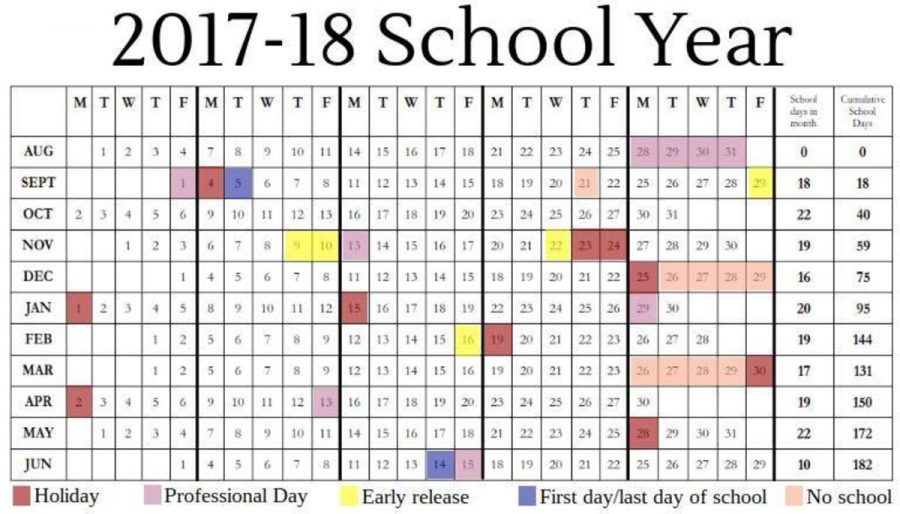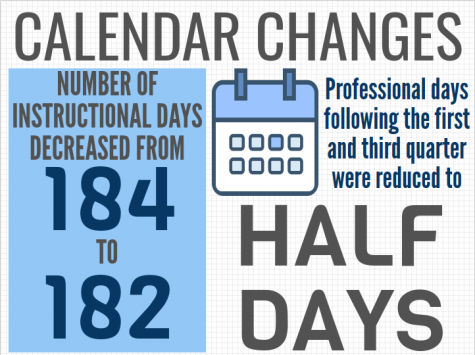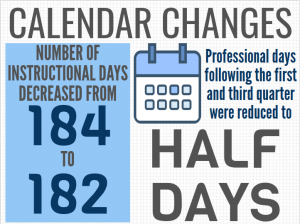2017-2018 school calendar finalized; concerns arise over shorter spring break
January 18, 2017
The BOE finalized the 2017-2018 school year calendar Dec. 13: composed of 182 days, the year will run from Sept. 5 until June 14.
The calendar allows for 182 days of school as required by state law while still accounting for holidays and snow days. This later start date will have rippling effects for the makeup of the rest of the calendar and will lead to a shorter spring break, BOE president Michael Durso said.
Governor Larry Hogan’s executive order requiring the post Labor Day start date was adopted after several attempts to avoid its implementation.
The BOE didn’t want to remove religious holidays, so shortening spring break was the only solution they felt was possible, Durso said. Spring break now only spans five days and includes two contingency days that could become school days if schools are closed for multiple snow days.
With respect to weather cancellations, the 2017-2018 calendar has only two snow days built in, as opposed to this year’s four. Extra cancellations will result in shortening spring break more rather than adding on more days in June.
Some students believe the shorter break will prevent forgetting important material.
“Shorter breaks and longer summer is better because taking nearly two weeks off during the school year can only make you forget what you learned,” junior Luka Kosanovic said. “Especially when school picks up very fast again after spring and winter break.”
Other students are against the change.
“[The later date] doesn’t give as much time between long stretches of school,” sophomore Daniel Harris said. “Consistent breaks are better than a few long ones in terms of catching up on work and decreasing.”
While reactions remain mixed, Durso made clear that the adjustments to the calendar were widely out of the BOE’s hands.
“[I felt that it was] unnecessary interference at the local level,” he said. “But we want to be careful to not upset the government due to the fact that they have control of many financial components. He has the upper hand on this.”











